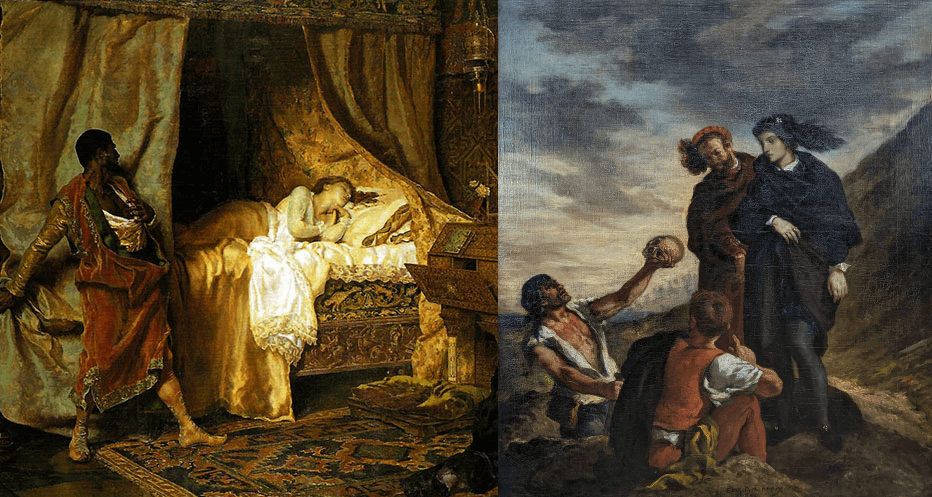Nostalgia

There was a time when meadow, grove, and stream,
The earth, and every common sight,
To me did seem
Apparelled in celestial light,
The glory and the freshness of a dream.
It is not now as it hath been of yore;—
Turn wheresoe’er I may,
By night or day.
The things which I have seen I now can see no more.
…
Our birth is but a sleep and a forgetting:
The Soul that rises with us, our life’s Star,
Hath had elsewhere its setting,
And cometh from afar:
Not in entire forgetfulness,
And not in utter nakedness,
But trailing clouds of glory do we come
From God, who is our home:
Heaven lies about us in our infancy!
Shades of the prison-house begin to close
Upon the growing Boy,
But he beholds the light, and whence it flows,
He sees it in his joy;
The Youth, who daily farther from the east
Must travel, still is Nature’s Priest,
And by the vision splendid
Is on his way attended;
At length the Man perceives it die away,
And fade into the light of common day.
From Ode: Intimations of Immortality from Recollections of Early Childhood
– William Wordsworth
Nostalgia is a longing for a time of real or imagined happiness where experience is saturated in meaning, significance, and emotional depth. In my childhood I had a dream of a green grass-covered hill meeting a blue sky. A memory of this dream, like one when I was older of standing on the second floor of a wooden house with the sea visible from the windows and the open door with a gray floor, white walls, and paintings of the sea on the walls, evoked a sense of wonder, beauty, and most of all, significance. There was a desire to inhabit that realm.
Something similar occurred in playing with my mother’s and her siblings’ toys from the 1930s kept at my grandparents’ house. These simple objects, a yo-yo with “Pepsodent” in a defunct font for instance, brought with them a feeling for the lost context and world.
C.S. Lewis writes on this theme in Surprised by Joy. “As long as I live my imagination of Paradise will retain something of my brother’s toy garden. And every day there were what we called “the Green Hills”; that is, the low line of the Castlereagh Hills which we saw from the nursery windows. They were not very far off but they were, to children, quite unattainable. They taught me longing–Sehnsucht; made me for good or ill, and before I was six years old, a votary of the Blue Flower.”[1]
Wordsworth’s poem Ode: Intimations of Immortality from Recollections of Early Childhood links these feelings and perceptions with our heavenly origins, and by implication, our heavenly destination. This connection between memory and the numinous is prominent in that father of Western philosophy, Plato. In both cases this memory points to both the past and the future; providing grounds for faith and hope.
Mircea Eliade[2] writes of “religious man” having rituals to deal with the sense of time wearing out. Gods strode the earth when the earth was being created and ennobled it with their sacred presence; making it sacred too. The difficulty is that as time progresses we get further from the time of sacred origins, an idea with clear links to Wordsworth and Plato, and more and more profane. This corresponds to the seeming repetition of human experience. Since literal repetition is not possible – the hundredth time something is done is quite different usually from the first time – what is actually happening is that a person’s own behavior and modes of perception have become routine and stereotyped. The cynical teenager is bored and disgusted. What makes the teen revolting is the adult’s knowledge that it is not the world that has let the youth down, but the youth’s own efforts. The tendency for perceptions, without extra effort, to become mundane as time goes by, combines with a temporal distance from a more divine childhood sensibility. Good poetry, like Wordsworth, or good fiction, like the tales of Narnia in C.S. Lewis can help to remedy both facts.

The cure for boredom is to become interested in something, and to strive. This exertion is likely to have a certain amount of its own boredom, whether practicing a musical instrument, studying Greek, learning how to fix cars, reading philosophy books, or practicing a sport.
Nostalgia as a desire for a literal return to childhood, like the notion of the noble savage, is pathological. To go back to some happy time when a person was six, he would have to relinquish every advance in his tastes, intellectual and moral development, every step towards independence and self-sufficiency he has made since then. It would make no more sense than getting a frontal lobotomy in order to develop a “What, me worry?” attitude. Nostalgia as an intimation of heaven and paradise, however, is beautiful and good.
Religious man developed rituals whereby he reenacted the formative acts of the gods through homology. A recurrent notion is that the ordered cosmos is created by killing chaos and chaos is commonly symbolized by a dragon or snake. The god kills the snake with a spear and creates order. Religious man exactly copies these actions, picking up a spear and thrusting it in an exact replication of the original act, and momentarily becomes one with the gods. The world is then ritualistically made new again. Linear time is made cyclical. Very many cultures impute significance to the new year. Eliade points out that secular man’s New Year’s resolutions are pale remnants of these rituals. New Year’s resolutions represent a chance to start again and do it right this time. Each new year is the opportunity to change something and improve.
New Year’s rituals represent a cure for the phenomenological sense of time wearing out, and getting farther and farther away from sacred origins, when time was new and the gods walked the earth. Without making these kinds of efforts the tendency is to get stuck in a rut and to notice a disparity between how life once felt and how it feels now.
Separating from your mother through birth introduces all sorts of new problems into someone’s life. Now it is possible to get cold, to be hungry, and to feel alone and alienated. The solution cannot be to return to the womb, but to move forward and to learn to overcome these problems. In the process, growth, and new capacities and enjoyments emerge.
Plato writes that philosophy begins with wonder and ends with wonder. There is something healthy about taking an interest in UFOs, the lost city of Atlantis, and the puzzle about megaliths. Anything, within reason, that inhibits cynicism and encourages taking an active interest in life is good. Very young children naturally have a sense of wonder and actually can be hard to impress because to them nearly everything seems remarkable and adults seem superhuman in their abilities. It has been claimed that many adults simply largely stop learning when they hit twenty-five. While avoiding the suffering that making an effort creates, it will simply give rise to new suffering and even despair.

Constant enchantment by the images on a smartphone is pure distraction and will just increase the frenzy of boredom – like eating food that has no calories would just make things worse for a starving person. It takes self-discipline to learn.
Phenomenologically, childhood experiences can often seem dense with meaning and emotional depth. For Wordsworth it is because children retain a stronger connection with their spiritual home. As time goes by though, experience can often seem “thinner;” more like a sparsely populated mostly blue sky, than the rich soil of the underbrush, perhaps until the other end of life approaches with the prospect of death and a return to our original home. To strain credulity to the utmost perhaps, some have claimed that some children’s “invisible friends” really are spiritual beings who accompany the children until a certain age. Whatever the reality, it is consistent with the idea that children retain a closer connection with our spiritual origin. And then there are adults who “talk” to deceased relatives in their minds on a regular basis.
The quest for meaning and significance should be given precedence over happiness. As much time as possible should be spent doing what is found meaningful and significant and this will redeem the suffering that everyone faces, such as the fact that everyone a person cares about will get sick and die, and if not them, then him. By pursuing meaning, a certain amount of happiness will hopefully accompany a life reasonably well lived.
Without some intimation of heaven and the afterlife, life would be unbearable. Wordsworth’s poem has the child “trailing clouds of glory.” It is understandable that we might look backwards to find this glory and use it to inform our sentimental education. Glory can be found in great literature, also with a connection to the past, that is rich in significance and meaning. By striving to retain a sense of wonder as an adult we can hope to survive the interlude between birth and death with a modicum of sanguinity, with moments of joy, until we realize our immortal destination and no longer have to make do with intimations. Philosophy begins with an intuition of the divine and continues by speculations as to its implications; and a careful parsing of what belongs to this world and what to the next.
Thou best Philosopher, who yet dost keep
Thy heritage, thou Eye among the blind,
That, deaf and silent, read’st the eternal deep,
Haunted for ever by the eternal mind,—
Mighty Prophet! Seer blest!
On whom those truths do rest,
Notes
[1] Quotation provided by JMSmith.
[2] Mare-chay-a El-ee-aa-de




